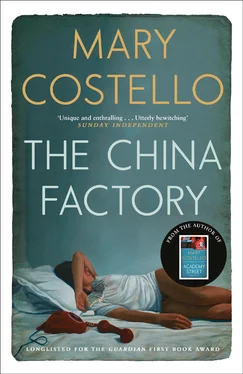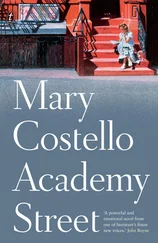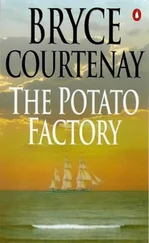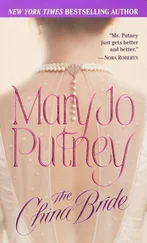Back in the flat he gets a text from Tom Burke to say he’s going down home in the evening and if he likes, they can travel together. He pictures himself deep in Tom’s passenger seat, the sun in his eyes, Tom doing most of the talking. He’ll have the radio tuned to some soft rock station until they’re out of Dublin. Then he’ll switch over to RTÉ for the sports news. Tom will advise him to buy a house, while prices are low. Then they’ll grow quiet and he’ll slip into the soft hopeful phase of the journey. There will still be light when they arrive. He will sit with his mother and eat the meal she’ll have cooked. He’ll walk down to the shore, counting the sheep and cattle on the way, and at ten o’clock he’ll head over to the pub. By eleven the younger ones will have left for Westport. The old men will drift off before twelve and he’ll glance around, not wanting to be the last to leave. There is something empty in the walk home.
He drives his van south along familiar streets to the suburbs. He rolls down the window, glances at gardens and at the blank faces of other drivers, feels the breeze on his arm. Suburban gardens are overstocked, he thinks. Country people are more sparing in their planting. They know how much space nature needs. They’re patient too. The sun comes out. Suddenly he remembers a moment when he was six or seven, sitting under the apple tree at home. The air was still and sunlight slanted in close to his feet. He dipped a hand into the ray of sun. What he felt was pure joy. He often thinks about this, about this other ideal version of himself he glimpsed that day.
He leaves the main road and turns off into the estate of his client. Mrs Sheridan’s car is in the driveway. He has never met Mr Sheridan. Across the street children pedal their bikes along the footpath. He unloads a spade, an electric cutter and cable, a brush, and carries them around to the back of the house. The garden has a deserted feel, even now, with most of the landscaping done. He stands and surveys his work. A curved border runs along three sides of the garden, newly planted with shrubs and climbers. Yesterday he put in a laburnum, and honeysuckle and jasmine against the wall. Today he will finish the planting and set the red paving slabs on the concrete patio. He glances at the back door and then at the upstairs windows. Most days he never sees her.
He digs a hole in the border. He taps out a young fuchsia from its pot. When he lays eyes on the tender nude roots he feels a small twinge between his shoulder blades. He read once in a science magazine that when a tomato is plucked those in the immediate vicinity secrete certain hormones, like the pheromones of fear released by humans in moments of terror. He tries to hold back these thoughts. Sometimes there is too much to take. He left horticultural college because of this, the thought of it all — nature’s throb, the secret life of plants, of insects, the hum and frequency of life under the surface. He knew that another reality was within his reach. He was afraid it would break through and he might hear it.
He wheels barrowloads of sand from the front of the house and lays them on the patio, allowing a slight slope towards the garden. He lifts the heavy slabs into place and sets the spirit level on each. The afternoon turns hot and he strips off his sweatshirt.
Inside the house the phone rings. He wonders what she does all day. She never leaves the house. The garden had been bare and forlorn at the start. She left the design and the plant selection entirely up to him. He had the impression that everything, every thought, cost her great effort. On his second day he stood at the back door, poised to knock with a query about the positioning of the wisteria. The door was ajar and he heard her talking on the phone. ‘I think so, mmm,’ she said, and then in a clear voice, ‘I have the patio man here at last. He came yesterday… Yes, he’s done that… I was watching him just now from upstairs…’
A while later she brought him out a glass of orange juice.
‘Here, take this,’ she said and stepped back. He towered over her. She asked about the plants, their names, out of politeness, he thought. He sensed that she longed for him to leave so she could be alone again.
After a moment’s silence he nodded towards the garden. ‘It’s a lovely quiet garden you have. When the plants fill out it’ll be very nice.’
‘Yes. It will.’
‘You could put a bench down in that far corner to catch the sun.’
‘Yes, I suppose.’
‘You could pave the corner first — there’ll be some paving slabs left over.’
‘Okay… though I’m not a great one for the outdoors. I don’t much like the sun.’
She was very still. He looked into her eyes.
‘I prefer winter…’ she said. ‘So much is expected of people in summer.’
He looked down at the top of her head, at her short dark brown hair. The ends curled out at the nape of her neck.
‘I’m not much of a green fingers, I’m afraid,’ she said and smiled.
‘I can leave you the plan, and gardening books can be very useful.’ He mentioned a title. She went inside for a pen and paper and then stood close to him as he spelled out the author’s name. Her skin was pale. She was his age or a little older, maybe thirty, and uncertain, as if she wasn’t fully sure of her place in that house or garden. As if they weren’t really hers. Her arms were bare; she wore a white sleeveless blouse and jeans. She had a mannerism: when she spoke she raised the back of her hand to shield her eyes, and squinted up at him. But the sun wasn’t in her eyes. Then, aware of the futility of this gesture, she’d quickly avert her hand to push her hair back. Her hands were a burden to her. Now she gripped the pen tightly with her fingers. They both stood there, looking at the page.
‘It’s good… very readable,’ he said.
She nodded and underlined the title. He noticed a tiny mole above her wrist bone.
‘It has a good index.’ He felt the silence of the garden close around them.
She drew lines above and below and around the title, boxing it in. They looked down at her boxed words. Their heads were very close. She raised her eyes to his, and let them linger there. Then she walked away.
He remembered how in January he had found a lone flower, a tiny purple Vinca, that had survived the winter under old growth. How, when he pushed aside the weeds, it had astonished him.
The sun is blasting down. He rests for a few minutes. A neighbour’s cat walks along the back wall. He hears the far-off murmur of traffic. Sometimes he thinks of going away. He has friends in New York and Boston, working in banks and IT, painting, decorating, gardening too, and fishing on boats off Cape Cod. He looks up and sees the cat watching him. He could always go west — the land is there, it is his. Lately he’s been dreaming of warm places. In the bookshops he finds pictures of red-roofed houses on wooded hillsides in Tuscany. There are vineyards and wildflowers and bougainvillea that reminds him of the rhododendrons of Mayo. He thinks of working in such a warm lush place, of how almost anything is possible. But then something — the teemingness of it all — returns to him. Too much abundance, he thinks.
The back door opens and she is standing in the doorway.
‘Hello.’
‘Hello… You’re almost finished, I see.’
‘Yeah, another hour should do it, then a bit of tidying up.’
‘I have to go out.’ He can barely hear her. He takes a step closer.
‘Right, okay,’ he says.
‘I need to pay you but I may not be back when you’re leaving. Can you…’ She drops something from her hand. She bends slowly and picks up her car keys and as she rises she sways a little.
‘Are you okay?’
Читать дальше












